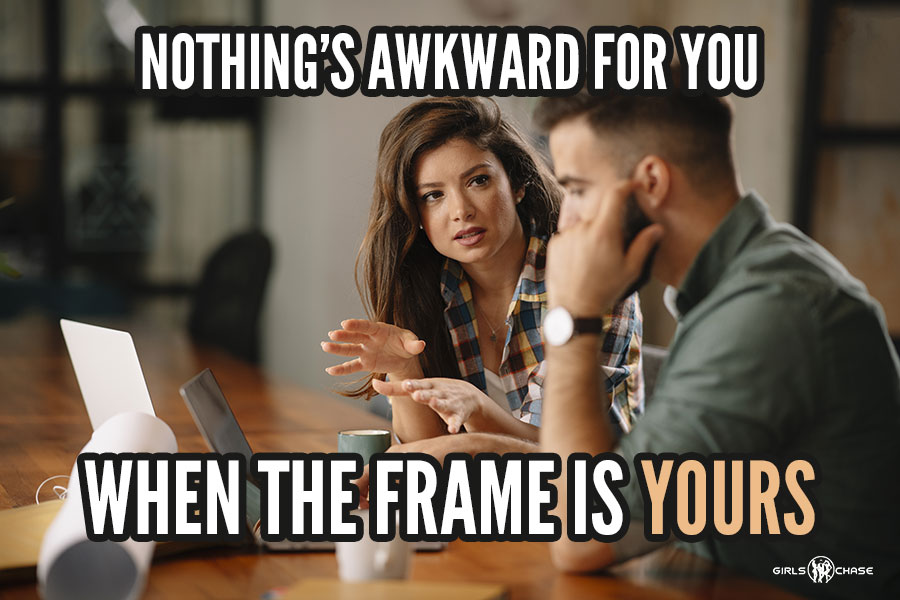 When you run into a potentially awkward situation with a woman, you need to ask yourself: will she be the one who controls the frame, or will it be you who does?
When you run into a potentially awkward situation with a woman, you need to ask yourself: will she be the one who controls the frame, or will it be you who does?How much of seduction is words, appearance, or actions... and how much of it is just frames?
If I walk up to a woman and she acts like she doesn't want me and I accept that frame, that was frames.
Likewise, if I walk up to a woman and she acts like she doesn't want me, then I persist with her in a charming way that conveys I know she really does want me, and she decides she finds me intriguing and starts to feel attraction, that was frames too.
If someone accuses me of something, and I accept the accusation and feel ashamed and bashfully apologize, that's frames.
Just the same, if someone accuses me of something, and I parry that accusation and making a convincing case that in fact I was in the right all along, and the other party backs down, well that too is frames.
Frames run as a constant undercurrent throughout all social interaction. If you've followed along with Alek Rolstad's latest series on frames, you know you can divide frames up into social and sexual, for instance. You know, from his series and our other pieces here on frame control, of various ways you can adjust, tweak, and impose your frames.
Good frame control consists of the expert interplay between known facts and offered explanations. If I saw someone grab my basketball and walk off the basketball court with it, and I believe he stole it and am about to alert the police officer standing nearby, you won't change my mind by insisting that I'm wrong and I didn't see it and that guy did not steal the basketball. However, you might change my mind by telling me he's a good guy and he only just took the basketball to reinflate it because it was low on air and getting flat, and that he'll be right back with it.
If you're telling the truth, you'll have saved a good Samaritan from a run-in with the police; if you're lying, you'll have allowed a thief to escape with my basketball. Either way, by pulling me into your frame, you have altered the course of events.
Frames won't always be as cut-and-dry as 'stealing or not stealing' either.
Many times what is being framed is something fuzzy:
- Are you the prize or is she?
- Is she interested in you or disinterested?
- Were you committing a faux pas or did she commit the faux pas (or no one did)?
- Whose views are more accurate: yours or hers? Or are both your views actually the same and she just did not realize it?
In the end, what determines how a great many things in your social life go is how good you are at framing: how expertly you frame, how well you tie the frames you establish to known facts and details, and how believably you convey your own belief in the frames you purport to hold.









SHOW COMMENTS (14)